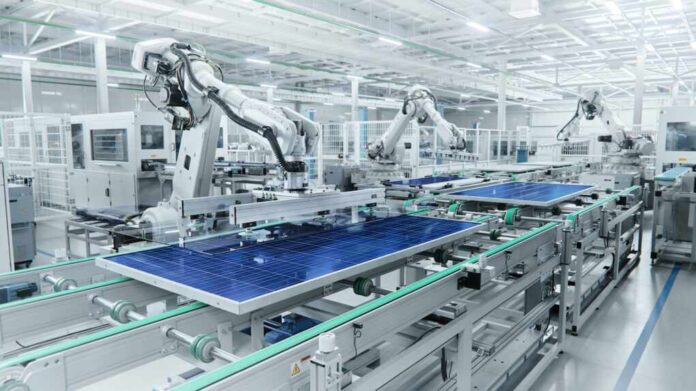
The fate of a billion-dollar solar plant in Albuquerque, New Mexico, has been thrown into question after a significant investment from a Chinese company. Maxeon, initially a Singapore-based firm, had planned to build its first U.S. manufacturing plant contingent on receiving federal funds from the U.S. Department of Energy’s Title 17 Clean Energy Financing Program. This plant was set to play a key role in enhancing U.S. energy security. However, after facing financial difficulties, Maxeon received nearly $200 million from TCL Zhonghuan, a Chinese green energy company, which now holds a controlling stake.
Despite the takeover, Maxeon remains committed to the New Mexico project and continues to pursue the federal loan. The Energy Department’s Loan Programs Office received $400 billion from the Inflation Reduction Act, intended to help the U.S. compete with China in the green energy sector. President Joe Biden emphasized that this funding would enable the United States to lead in the economic competition of the 21st century. However, with TCL Zhonghuan’s investment, the potential for federal funds benefiting a Chinese-controlled entity has raised significant concerns.
Beyond the potential loan, Maxeon’s decision to build in New Mexico was influenced by the tax credits offered through the Inflation Reduction Act. These credits allow solar manufacturers to write off 30% of eligible investment costs or receive federal funds based on the volume of production. Mulligan highlighted the Act’s role in catalyzing America’s energy transition, emphasizing its alignment with Maxeon’s strategic goals.
The Treasury Department and the Energy Department’s Loan Programs Office have faced scrutiny over whether foreign-controlled projects should receive these subsidies. While foreign entities are not barred from benefiting, each project is evaluated for national security concerns. Jigar Shah, head of the Loan Programs Office, has even encouraged foreign companies to apply for loans.
An Energy Department spokesperson confirmed that Maxeon does not have a finalized loan and cited “confidential business information” in declining to provide further details. This case underscores the broader challenge of balancing the promotion of domestic green energy projects with the involvement of foreign companies, particularly from China.
Maxeon is not alone in facing difficulties in the U.S. market under Biden’s administration. The influx of cheap Chinese solar modules, facilitated by a 24-month moratorium on tariffs targeting Chinese panels, has led to a decline in the U.S. market share. Despite the moratorium intended to give American companies time to catch up, the U.S. added only one gigawatt of solar manufacturing capacity compared to China’s 40 gigawatts.
As the situation with Maxeon unfolds, it highlights the complexities of achieving energy independence and security while navigating the global landscape of renewable energy investments.



























